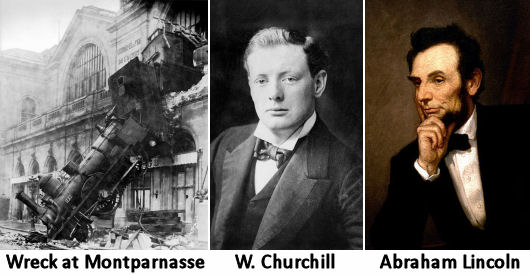Winston Churchill? Leo C. Rosten? Walter Winchell? Herman J. Mankiewicz? Apocryphal?
Question for Quote Investigator: Winston Churchill had an unhappy experience negotiating with a politician who held a very high opinion of himself. Afterward Churchill reportedly concocted the perfect remark for deflating the pretensions of an egomaniac:
There, but for the grace of God, goes God.
However, I have heard that this same jibe was aimed at the renowned auteur Orson Welles during the filming of “Citizen Kane”. Would you please explore the provenance of this witticism?
Reply from Quote Investigator: This remark was based on a comical modification of a resonant phrase from history. Here are two instances:
(1) There but for the grace of God, go I.
(2) There but for the grace of God, goes John Bradford.
More information about the origin of this penitent statement is available here.
The earliest evidence of the quip located by QI was printed in the 1941 book “Hollywood: The Movie Colony, The Movie Makers” by Leo C. Rosten which included the quotation applied to filmmaker Orson Welles. Rosten did not identify the person who delivered the barb. Boldface has been added to excerpts:1
When Orson Welles (of whom someone said, “There, but for the grace of God, goes God”) was first shown through a studio he exclaimed, “This is the biggest electric train any boy ever had!” The remark is acute and revealing.
QI is not certain of the precise release date in 1941 of the “Hollywood” book. On January 20, 1941 the widely-distributed syndicated columnist Walter Winchell presented a different version of the circumstances surrounding the quotation. The target of the barb was a religious figure named Father Divine instead of Orson Welles. The word “niftied” was a vocabulary item employed by Winchell. It meant the spoken phrase was “nifty”, i.e., deft. The name “Divine” was spelled “Devine” in the paper:2
The Story Tellers: The DAC News reports that a Harlemite watching Father Devine whisk by in a long limousine, niftied: “There, but for the grace of God—goes God.”
Above are the two earliest citations located by QI, and the temporal ordering was uncertain. The tale mentioning Orson Welles has circulated continuously to the present day. The version with Father Divine has largely disappeared from collective memory. A third version with Winston Churchill speaking the humorous line entered circulation by 1943 as indicated by the citation listed further below.
Here are additional selected citations in chronological order.
Continue reading “Quote Origin: There But for the Grace of God, Goes God”